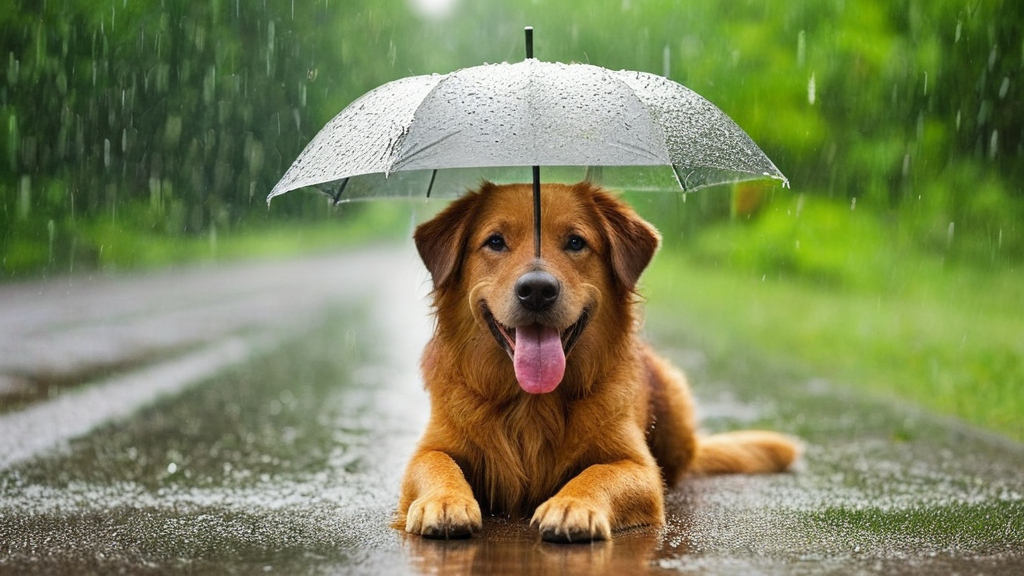Essential Winter Pet Care Strategies
As winter’s chill settles in, pet owners must take extra precautions to ensure their furry companions stay safe, healthy, and comfortable during the cold months. Understanding the unique challenges that winter presents can help you protect your pets from potential health risks and weather-related complications.
Indoor Warmth and Comfort
Keeping your pets warm is crucial during winter. Create a cozy indoor space with soft, thick bedding away from drafty areas. Provide extra blankets and consider a heated pet bed for additional warmth. Monitor your home’s temperature, ensuring it remains comfortable for your pets, especially for older animals or those with shorter coats.
Nutrition and Hydration Needs
Winter requires adjustments to your pet’s diet. Animals may burn more calories staying warm, so consult your veterinarian about potentially increasing food portions. Ensure fresh water is always available and check water bowls frequently to prevent freezing. Pets can become dehydrated quickly, even in cold weather.
Protective Outdoor Gear
For dogs that need outdoor walks, invest in protective clothing:
- Waterproof winter coats
- Booties to protect paw pads
- Reflective gear for visibility during shorter daylight hours
Paw Care and Protection
Cold surfaces can damage your pet’s sensitive paw pads. Salt and chemical de-icers pose additional risks. After walks, thoroughly wipe your pet’s paws to remove potential harmful substances. Consider using pet-safe paw balm to prevent cracking and protect against ice and salt damage.
Exercise and Mental Stimulation
Reduced outdoor time doesn’t mean reduced activity. Create indoor play opportunities to keep your pets physically and mentally engaged. Interactive toys, indoor fetch, and puzzle feeders can help maintain their fitness and prevent winter weight gain.
Health Monitoring
Winter can exacerbate certain health conditions. Watch for signs of:
- Arthritis flare-ups in older pets
- Respiratory issues
- Decreased mobility
Regular veterinary check-ups become even more critical during these months.
Emergency Preparedness
Create a winter emergency kit for your pets, including:
- Extra medications
- Warm blankets
- First aid supplies
- Extra food and water
Special Considerations for Different Pets
Different animals have varying winter needs. Short-haired breeds require more protection, while long-haired pets might need regular grooming to prevent matting. Indoor cats still need mental stimulation, while outdoor cats should have a warm, dry shelter.
Recognizing Hypothermia Signs
Learn to identify potential hypothermia symptoms:
- Excessive shivering
- Lethargy
- Weak pulse
- Difficulty breathing
Immediate veterinary attention is crucial if these symptoms appear.
Maintaining Regular Veterinary Care
Winter doesn’t pause health requirements. Continue preventative treatments for parasites and maintain vaccination schedules. Some conditions become more prevalent during colder months, making proactive healthcare essential.
Implementing these strategies will help ensure your pets remain healthy, comfortable, and safe throughout the winter season. Attentive care, proper preparation, and understanding your pet’s specific needs are key to navigating the challenges of cold weather.
Health and Comfort Measures for Pets During Cold Months
Winter can be challenging for pets, requiring special care and attention to ensure their health and comfort during cold months. As temperatures drop, your furry friends need extra protection and support to stay warm, healthy, and happy.
Protecting Your Pet’s Body Temperature
Cold weather significantly impacts animals differently based on their breed, size, and coat type. Short-haired or small breed pets are particularly vulnerable to temperature changes. Consider investing in pet sweaters or coats that provide an additional layer of warmth during outdoor activities. For dogs with thin fur or elderly pets, these protective garments can make a substantial difference in maintaining body heat.
Indoor Comfort Strategies
Create a warm and cozy indoor environment for your pets. Place their beds away from drafty windows and provide soft, thick blankets that help retain body heat. Elevated beds can also prevent direct contact with cold floors, offering additional insulation and comfort.
Nutrition and Hydration Considerations
- Increase caloric intake slightly to help pets generate more body heat
- Ensure fresh, unfrozen water is always available
- Monitor water bowls to prevent freezing in outdoor settings
- Choose nutrient-dense foods that support metabolic needs during colder periods
Outdoor Safety Precautions
Limit outdoor exposure during extreme cold. When walking dogs, protect their paws from ice, salt, and freezing surfaces by using pet-friendly booties or applying protective paw balm. After walks, thoroughly dry and warm your pet, checking for any signs of ice accumulation between their paw pads.
Recognizing Cold-Related Health Risks
Watch for signs of hypothermia or frostbite in pets. Symptoms include excessive shivering, lethargy, weak pulse, and cold extremities. Pets with pre-existing health conditions like arthritis might experience increased discomfort during winter, so consult your veterinarian about managing their specific needs.
Grooming and Skin Care
Winter’s dry air can cause skin irritation and dandruff. Maintain a consistent grooming routine to distribute natural oils and prevent skin problems. Use pet-safe moisturizing products and avoid over-bathing, which can strip essential oils from their coat.
Exercise and Mental Stimulation
Reduced outdoor activity during winter can lead to boredom and weight gain. Engage pets with indoor play sessions, interactive toys, and mental stimulation games. Short, frequent indoor exercises can help maintain their physical and mental well-being.
Special Considerations for Different Pets
Cats and dogs have unique winter needs. Indoor cats might require less intervention, while outdoor cats need warm shelter and protection from freezing temperatures. Small pets like rabbits and guinea pigs require additional bedding and controlled indoor temperatures.
Emergency Preparedness
Keep an emergency kit with pet-specific winter supplies, including extra blankets, heating pads, and contact information for your veterinarian. Know the signs of cold-related health issues and have a plan for quick medical intervention if needed.
By implementing these comprehensive care strategies, pet owners can ensure their beloved companions remain safe, comfortable, and healthy throughout the challenging winter months. Attentive care, proper nutrition, and understanding individual pet needs are key to navigating cold weather successfully.
Key Takeaway:
Key Takeaway: Comprehensive Winter Pet Care Guide
Winter presents unique challenges for pet owners, requiring proactive and thoughtful care to ensure the health, safety, and comfort of our beloved animal companions. The essential strategies for winter pet care revolve around protecting your pets from cold-related risks while maintaining their overall well-being.
Click here for Pet Care product The most critical aspect of winter pet care is understanding that different animals have varying tolerances to cold temperatures. While some breeds are naturally equipped to handle chilly weather, others are more vulnerable and require extra protection. This means pet owners must be observant and adaptive, tailoring their care approach to their specific pet’s needs.
Temperature management is paramount. Indoor pets should have a warm, draft-free sleeping area, while outdoor pets may need additional shelter that protects them from wind, snow, and freezing temperatures. Invest in quality pet beds, blankets, and even specialized winter clothing for smaller or short-haired animals that are more susceptible to cold.
Click here for Pet Care product Nutrition plays a crucial role in winter pet health. Animals often require more calories during cold months to maintain body heat, so consult with your veterinarian about potential dietary adjustments. Ensure fresh, unfrozen water is always available, as hydration remains essential even in winter.
Outdoor activities need careful consideration. Limit extended exposure to cold, watch for signs of hypothermia, and be mindful of potential hazards like ice and snow. Protective gear such as dog booties can prevent painful ice and salt damage to paw pads. Always wipe your pet’s paws after outdoor walks to remove potentially harmful de-icing chemicals.
Click here for Pet Care product Health monitoring becomes even more critical during winter. Watch for signs of discomfort, such as excessive shivering, reluctance to move, or changes in behavior. Regular veterinary check-ups can help prevent winter-related health issues and ensure your pet remains in optimal condition.
Special attention should be given to senior pets and those with pre-existing health conditions, as they are more vulnerable to cold-related complications. Arthritis can worsen in cold weather, so provide additional warmth and consider veterinarian-recommended supplements or treatments.
Click here for Pet Care product The key takeaway is that winter pet care is about proactive protection, attentive monitoring, and adapting to your pet’s specific needs. By implementing these comprehensive strategies, pet owners can ensure their furry companions remain healthy, comfortable, and safe throughout the coldest months of the year.
Ultimately, winter pet care is an expression of love and responsibility. It requires planning, observation, and a commitment to your pet’s well-being, transforming the challenging winter months into a time of warmth, comfort, and continued companionship.
Conclusion
Protecting your beloved pets during winter requires thoughtful preparation and consistent care. By implementing the essential strategies discussed, you can ensure your furry companions remain safe, healthy, and comfortable throughout the coldest months of the year. From providing warm shelter and appropriate clothing to maintaining proper nutrition and monitoring their health, each action plays a crucial role in supporting your pet’s well-being.
Remember that every pet is unique, and their winter needs may vary depending on breed, age, and individual health conditions. Always pay close attention to your pet’s behavior and physical signs of discomfort. Regular veterinary check-ups can help you stay proactive about potential winter-related health risks.
Pet owners who invest time and effort in winter preparedness demonstrate true compassion and responsibility. Your commitment to their comfort goes beyond basic survival—it shows deep love and understanding of their needs. Whether you have a short-haired chihuahua or a thick-coated husky, tailoring your approach to their specific requirements will help them thrive during challenging winter conditions.
Ultimately, winter pet care is about creating a nurturing environment that keeps your animal companions warm, healthy, and happy. By following expert recommendations and maintaining a watchful eye, you can transform the cold season into a time of bonding and mutual care. Your pets rely on you for protection, and with the right strategies, you can make winter a season of comfort and security for them.




